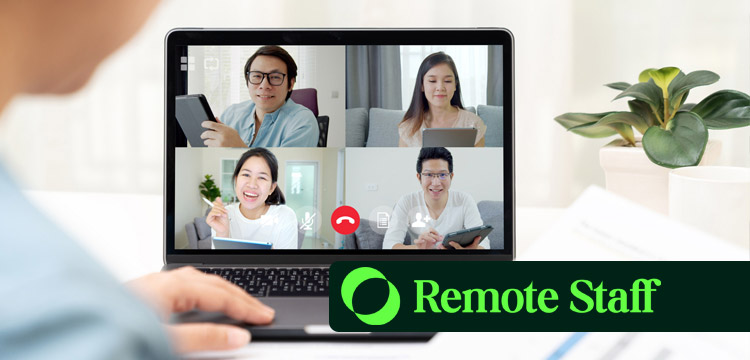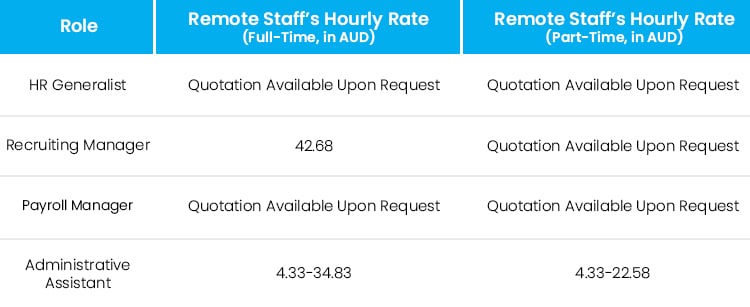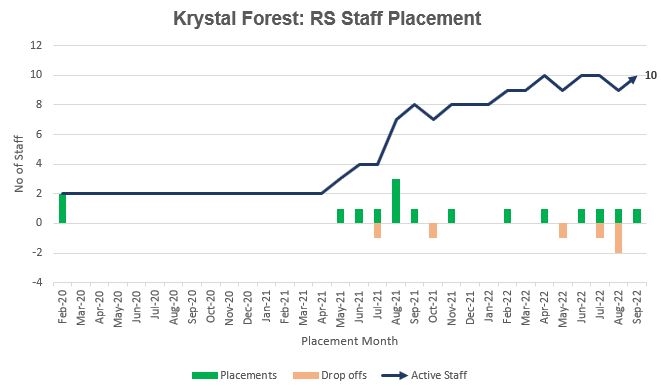Introduction
Currently, the Australian workforce totals 11.9 million, with 38% of them open to a career change. 84% of those are apparently looking actively, with 63% doing so monthly. Meanwhile, 16% claim that they never look for jobs.
As of 2019, over 5,000 talent professionals provided insights on the top trends with the greatest impact on the recruitment industry during the said year. These include soft skills, work flexibility, and pay transparency.
A recent study found that 91% of Australian talent professionals acknowledge the importance of soft skills to the future of human resources (HR) and recruitment. However, 57% of talent managers admitted that they struggle to assess soft skills accurately. Less than half (41%) also admit to the lack of a formal process to do the same. Thus, the recruitment industry is looking to AI technology to provide tech-based assessments to measure a candidate’s soft skills more effectively later on.

Regarding work flexibility, it’s increasingly become a priority within the recruitment industry over the years. Many professionals would now choose a job that offers them a better work-life balance as opposed to one with a higher pay rate, and contrary to popular belief, this applies to both genders and not just to women. Furthermore, work-life balance is the number one consideration among many Australian professionals, although their definitions of such may vary.
Pay transparency remains a tricky subject. 51% of Australian talent professionals consider it vital to the future of the recruitment agency, and the 136% increase in the amount of LinkedIn content to such since 2014 mirrors the sentiment. Implementing it is easier said than done, unfortunately. Many companies fear that pay transparency might result in disputes, and half of them (51%) are currently not practicing it and are unlikely to start.
Talent professionals take an opposing view, in contrast. 57% of them across the globe advocate for pay transparency as they believe it makes the hiring process more efficient as it could ensure fair pay, help streamline negotiations, filter out those looking for a higher compensation, and allows the interview to focus on other things.
Cost-wise, Kelly Services Recruitment pegs the average cost per hire at around AUD5,000. These comprise hiring fresh graduates and trade/customer service/administrative employees and also factors in the time lost to fill the position, the time spent on training and onboarding, as well as the forfeited promotional potential.
Challenges in the Industry
It’s clear that the employer-employee relationship has evolved significantly over the past decade. Professionals now demand more transparency, accountability, and trust from their employers while the latter require not just good technical skills from the former, but also decent soft skills like creativity, effective collaboration, and adaptability.
This has resulted in some unique challenges:
Difficulties in Filling Highly Specialized Roles

Many jobs are apparently becoming highly specialized, with over 91,000 unique job titles on one recruitment site alone. Consequently, the candidate marketplace is tighter and sales and software engineer roles have become increasingly hard to fill. Over 37% of sales roles reportedly remain unfilled after 90 days, for instance. This shortage is apparently causing a significant drag on revenue and innovation.
Meanwhile, operations are the number one priority role that most companies are looking to fill, with sales and information technology (IT) not far behind. Insiders now recommend screening an average of 50-60 applicants per job to increase the odds of filling them, as well as reworking the overall hiring strategy and employment branding.
Increased Average Hiring Time

The average hiring time has nearly doubled since 2010, going from 42 to 68 days over the last 5 years. It now takes an average of 68 days to fill a vacant position, with sales roles and software roles taking an average of 89 and 94 days, respectively, to fill.
Still, the share of overall jobs remains open after 90 days.
With competitors snapping up the best talent quickly, the recruitment industry is now an employee’s market, leading to a decrease in both productivity and revenue for the team as the time to fill a position increases. However, the recent covid-19 pandemic may have changed this.
Technological Disruptions

Public sharing platforms such as Glassdoor are gaining more credibility among applicants, and there is a growing movement for niche and tailored sourcing within the recruitment industry. “Post and pray” methods of advertising openings may become less common in the future as well.
Both traditional CV reviews and job application methods are becoming obsolete, with algorithms, chatbots and AI gradually replacing the former and mobile technologies doing the same for the latter.
There is also a significant move to freelancing and contracting work, with the focus on skills and projects rather than on jobs, thus providing an opportunity to dramatically change the traditional organisational structure to make it more conducive to such arrangements.
The COVID-19 Pandemic

With so many industries affected by the lockdown periods made necessary by the recent covid-19 outbreak, there has been a freeze on hiring throughout many companies to stave off bankruptcy. Recruitment companies are no exception, and many face the prospect of having to retrench their own employees if they are to ride out the economic slowdown.
Remote Staff as a Possible Solution

With the rapidly changing face of recruitment and employment in Australia, not to mention the challenges presented by an ongoing global pandemic, recruiting teams in Australia will have to be more strategic about recruiting for their talent pools.
This is where Remote Staff comes in. Given the Philippines’ significantly lower costs of living, the Australian dollar’s edge on the local exchange rate, and the rich pool of local talents, Remote Staff’s long and varied experience within the remote work industry, its cutting-edge platform, and hard-won insights on the local culture make it the perfect intermediary for Australian companies looking to fill crucial roles without breaking the bank, especially now.
Roles
- HR Generalist

- Recruiting Manager

- Payroll Manager

- Administrative Assistant

Tasks Per Role That Can Be Outsourced
 HR Generalist
HR Generalist
- initiate and respond to inquiries about employee leaves and benefits;
- serve as a point of contact for assigned employees to provide holistic case management services;
- critically assess and adjust the case management plan to an employee’s changing needs;
- address and respond to sensitive situations;
- troubleshoot issues and seek to remove barriers before, during, or after a leave event;
- respond to employee impacting issues that may arise during the leave event and ensure the right communication occurs;
- educate managers and business partners on employee concerns and needs prior to being off or returning back to work;
- consult and coordinate and partner with other departments (e.g. Legal, Payroll, etc.) as appropriate.
Recruiting Manager
- coordinate with Resources team to Initiate new hiring requisitions;
- forecast future hiring needs after coordinating with department managers;
- create accurate and marketable job descriptions;
- communicating departmental updates with higher management;
- schedule and conduct interviews;
- manage the candidate pipeline;
- provide input on hiring decisions;
- post jobs to various outlets and monitor them;
- update candidates throughout the hiring process;
- build and maintain relationships with external recruiting partners.
Payroll Manager
- calculate taxes accurately;
- file quarterly and annual withholding taxes;
- respond to payroll-related inquiries;
- ensure the timely and accurate payment of annual bonuses;
- process the payroll in accordance with company policies and state and local governance;
- reconcile payroll and payroll tax balance sheet accounts;
- prepare audit requests if they arise.
Administrative Assistant
- manage social media accounts;
- prepare reports;
- book appointments;
- research as needed.
Remote Staff’s Hourly Rates
As some of the roles in the previous sections are highly specialized, their rates aren’t standardized yet. Furthermore, unless stated otherwise, the rates indicated below are expressed in Australian dollars (AUD):

Client Success Story: Northbridge Recruitment

Krystal Forrest has been a Remote Staff client since 2020. As the Head of HR and Operations at Northbridge Recruitment, she usually seeks out Filipino remote talent for full-time administrative roles, specifically recruiters.
Initially, she sought out two remote talents for an entry-level position, requiring 1-2 years of experience and skills like sourcing, database cleanse, and candidate management.
Krystal also wanted candidates who had experience recruiting within Australia, knowledge of all IT and non-IT verticals, and excellent communication skills, along with experience in both Fieldglass and Jobadder CRM.
Remote Staff rose to the occasion, filling both roles with the right people who stayed on for more than two years. (One of them is still with the company as of this writing.)
Serena has been working remotely and writing content for the better part of the last decade. To date, she's written for Pepper.ph and Mabuhay Magazine, among others, and has churned out more than a thousand articles on everything from The Basics of Stock Market Investing to How to Make Milk Tea-Flavored Taho at home. Hermits, aspiring hermits, and non-hermits with interesting project propositions may email her at serena.estrella10@gmail.com.





















